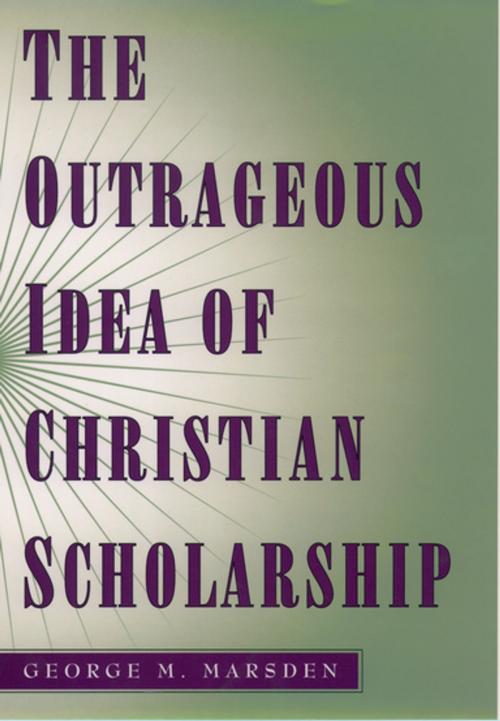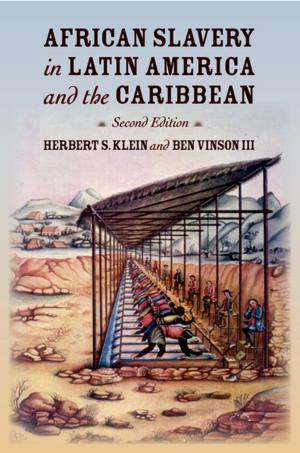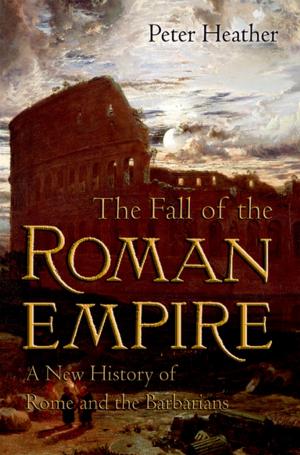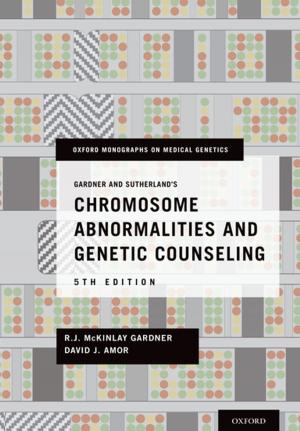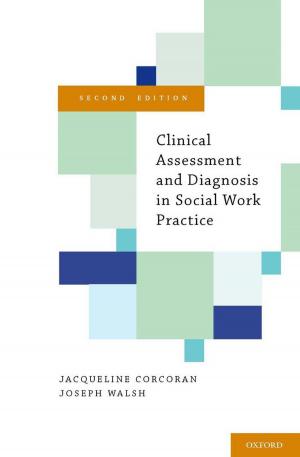The Outrageous Idea of Christian Scholarship
Nonfiction, Religion & Spirituality, Reference, Education, Reference & Language, Education & Teaching, Higher Education| Author: | George M. Marsden | ISBN: | 9780199880379 |
| Publisher: | Oxford University Press | Publication: | March 13, 1997 |
| Imprint: | Oxford University Press | Language: | English |
| Author: | George M. Marsden |
| ISBN: | 9780199880379 |
| Publisher: | Oxford University Press |
| Publication: | March 13, 1997 |
| Imprint: | Oxford University Press |
| Language: | English |
At the end of his 1994 book, The Soul of the American University, George Marsden advanced a modest proposal for an enhanced role for religious faith in today's scholarship. This "unscientific postscript" helped spark a heated debate that spilled out of the pages of academic journals and The Chronicle of Higher Education into mainstream media such as The New York Times, and marked Marsden as one of the leading participants in the debates concerning religion and public life. Marsden now gives his proposal a fuller treatment in The Outrageous Idea of Christian Scholarship, a thoughtful and thought-provoking book on the relationship of religious faith and intellectual scholarship. More than a response to Marsden's critics, The Outrageous Idea of Christian Scholarship takes the next step towards demonstrating what the ancient relationship of faith and learning might mean for the academy today. Marsden argues forcefully that mainstream American higher education needs to be more open to explicit expressions of faith and to accept what faith means in an intellectual context. While other defining elements of a scholar's identity, such as race or gender, are routinely taken into consideration and welcomed as providing new perspectives, Marsden points out, the perspective of the believing Christian is dismissed as irrelevant or, worse, antithetical to the scholarly enterprise. Marsden begins by examining why Christian perspectives are not welcome in the academy. He rebuts the various arguments commonly given for excluding religious viewpoints, such as the argument that faith is insufficiently empirical for scholarly pursuits (although the idea of complete scientific objectivity is consider naive in most fields today), the fear that traditional Christianity will reassert its historical role as oppressor of divergent views, and the received dogma of the separation of church and state, which stretches far beyond the actual law in the popular imagination. Marsden insists that scholars have both a religious and an intellectual obligation not to leave their deeply held religious beliefs at the gate of the academy. Such beliefs, he contends, can make a significant difference in scholarship, in campus life, and in countless other ways. Perhaps most importantly, Christian scholars have both the responsibility and the intellectual ammunition to argue against some of the prevailing ideologies held uncritically by many in the academy, such as naturalistic reductionism or unthinking moral relativism. Contemporary university culture is hollow at its core, Marsden writes. Not only does it lack a spiritual center, but it is without any real alternative. He argues that a religiously diverse culture will be an intellectually richer one, and it is time that scholars and institutions who take the intellectual dimensions of their faith seriously become active participants in the highest level of academic discourse. Whether the reader agrees or disagrees with this conclusion, Marsden's thoughtful, well-argued book is necessary reading for all sides of the debate on religion's role in education and culture.
At the end of his 1994 book, The Soul of the American University, George Marsden advanced a modest proposal for an enhanced role for religious faith in today's scholarship. This "unscientific postscript" helped spark a heated debate that spilled out of the pages of academic journals and The Chronicle of Higher Education into mainstream media such as The New York Times, and marked Marsden as one of the leading participants in the debates concerning religion and public life. Marsden now gives his proposal a fuller treatment in The Outrageous Idea of Christian Scholarship, a thoughtful and thought-provoking book on the relationship of religious faith and intellectual scholarship. More than a response to Marsden's critics, The Outrageous Idea of Christian Scholarship takes the next step towards demonstrating what the ancient relationship of faith and learning might mean for the academy today. Marsden argues forcefully that mainstream American higher education needs to be more open to explicit expressions of faith and to accept what faith means in an intellectual context. While other defining elements of a scholar's identity, such as race or gender, are routinely taken into consideration and welcomed as providing new perspectives, Marsden points out, the perspective of the believing Christian is dismissed as irrelevant or, worse, antithetical to the scholarly enterprise. Marsden begins by examining why Christian perspectives are not welcome in the academy. He rebuts the various arguments commonly given for excluding religious viewpoints, such as the argument that faith is insufficiently empirical for scholarly pursuits (although the idea of complete scientific objectivity is consider naive in most fields today), the fear that traditional Christianity will reassert its historical role as oppressor of divergent views, and the received dogma of the separation of church and state, which stretches far beyond the actual law in the popular imagination. Marsden insists that scholars have both a religious and an intellectual obligation not to leave their deeply held religious beliefs at the gate of the academy. Such beliefs, he contends, can make a significant difference in scholarship, in campus life, and in countless other ways. Perhaps most importantly, Christian scholars have both the responsibility and the intellectual ammunition to argue against some of the prevailing ideologies held uncritically by many in the academy, such as naturalistic reductionism or unthinking moral relativism. Contemporary university culture is hollow at its core, Marsden writes. Not only does it lack a spiritual center, but it is without any real alternative. He argues that a religiously diverse culture will be an intellectually richer one, and it is time that scholars and institutions who take the intellectual dimensions of their faith seriously become active participants in the highest level of academic discourse. Whether the reader agrees or disagrees with this conclusion, Marsden's thoughtful, well-argued book is necessary reading for all sides of the debate on religion's role in education and culture.
